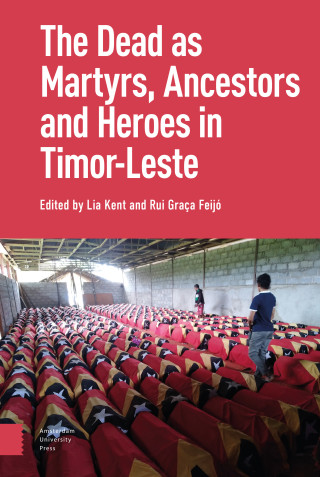A note on language
Acknowledgements
Table of Contents
Chapter 1: Frontiers imagined, frontiers observed
A short of history of a small country
Life between lines: an outline of Oecussi
The kase, the meto, and the threefold division of indigenous life in Oecussi
Urban highlanders: movement and authority in Oecussi
Encounter. Change. Experience
Theories of encounter
Theories of change
Theories of experience
Encountering Oecussi: serendipity and the social imperative
Chapter 1 works cited
Chapter 2: Body and belief in Timor-Leste
His name was Octobian Oki
The dual utility of ritual in urban Timor
Spirits, somatic experience, and the limits of belief
Jake's story: Atauro
Jake's story: Oecussi
Land as life in Timor-Leste - the embodiment of knowing
Chapter 2 works cited
Chapter 3: The ruin and return of Markus Sulu
Precedence and the modern pegawai
The Sulu, their supplicants, and the shame of Markus
'All Timor knew about the Sulu'
Rain and money: meto tales as a way of controlling kase fortunes
Conclusion
Chapter 3 works cited
Chapter 4: Angry spirits in the special economic zone
ZEESM - Timor's special economic zone
High modernism
Oecussi's indigenous political/spiritual system
Growing food and relationships: Meto land practices
Affect, angry spirits, and resistance in Oecussi
Illness, anxiety, and affect in an inspirited land
Conclusion
Chapter 4 works cited
Chapter 5: Stones, saints and the 'Sacred Family'
Religion in Oecussi: the concept of le'u, the coming of the Catholic and the influence of the Indonesian state
'Heat', healing, and the meto in Oecussi
'Strangeness', Mr. Bean and meto healing in 2015
The book of Dan. The door in the tree
Stones that look like saints
Healing and the Sacred Family
Conclusion
Chapter 5 works cited
Chapter 6: Meto kingship and environmental governance
Forests, failed states, and the local as a way of getting by
Jose and forest: personal ecologies of governance in the 21st century
Cloaking kingship - the Besi and the consolations of a failing state
The constraining - and enabling - effect of meto perspectives on kase law
Conclusion
Chapter 6 works cited
Chapter 7: Ritual speech and education in Kutete
Eskola Lalohan
Ritual speech in Oecussi
Children of the charcoal, children of the pencil
Conclusion
Chapter 7 works cited
Concluding thoughts: encounter, change, experience
An animating interior: the meto and economic development
Seeming like a state
Lives in motion: the meto as movement in a global age
Concluding thoughts: works cited
Selected Glossary
Bibliography
Index





